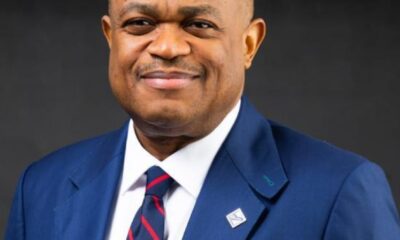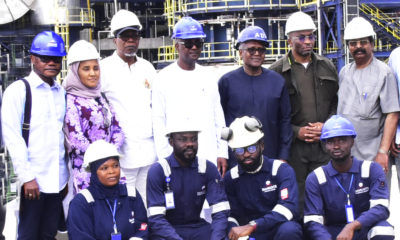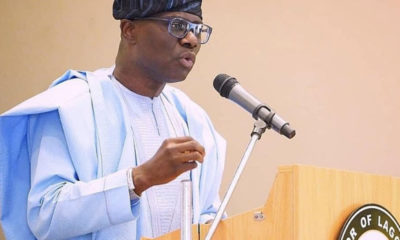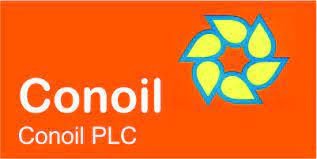Business
Shareholders confront Conoil over shortcomings in corporate governance

LAGOS-Shareholders of Conoil Plc have raised concern over the shortcomings in the company’s corporate governance practices, especially the continuous absence of the chairman, Mr. Mike Adenuga, from the Annual General Meetings, AGMs.Specifically, they said that Adenuga has in the last 10 years absented himself from the AGMs, noting that his absence is detrimental to the interest and progress of the company, being the majority shareholder.
This is contained in a letter addressed to the chairman of Conoil Plc by members of Renaissance Shareholders Association, RSA, signed by their president, Amb. Olufemi Timothy.
They also criticized the company for frequent change in managing directors, MDs, saying that the company has produced more MDs than any of its peers in the petroleum marketing sector as it has in the last decade engaged not less than 10 managing directors, having an average of one MD per annum.
Querying why the company could not sign on one MD for at least a period of five years, they said that a stable management is necessary for consistent policy implementation and a steady growth.“If we may be correct, you have not been to the company’s AGM for over a decade now, (10 years).
This to us, who are concerned about your stake and that of other 26 percent holders of the equity of the company, is a disservice to the company and its business. “A leader must always be seen leading its team at all times. No report of events at the AGM to you could be as accurate as when you are present to see the feelings; hear the comments, compliments and the body language of people by yourself.
We wish that you will have a change of mind, attitude on this. Come to the next AGM wherever you know will be secure enough for you and your team, if security is your concern,” they said.
The shareholders frowned at lack of confidence shown in the affairs of the company by the directors as manifested through their lack of having shareholding in the company. According to them, only three out of the 10 directors hold interest in the company.
They also called on the company to appoint more non-executive directors, especially independent and minority shareholders into the Board, saying that having a Board of Directors consisting of five executive and five non-executive directors is against the recommendations of the Code of Corporate Governance that states that non-executives directors must be more than the executives who form the management team upon which the Board has an oversight function.
“Please, we recommend that you appoint more non-executive directors, especially, independent directors and minority shareholders’ representative.Since a few years ago that the two directors representing minority shareholders (holding 26 percent) left the Board, you have not replaced them a
ccordingly,” they noted.
On the account for the year ended December 31, 2013, they said that it would have been impossible for the company to achieve such a robust result without the extra-ordinary income earned from the debts owed the company by the federal government on delayed payment of subsidy on imported fuel.Consequently, they argued that the N2.77 billion dividends declared for the year would not have been possible without the extra-ordinary income and would not be sustained in the subsequent years if the management could not produce profit before tax and gross operating profit of N4.5 billion and N20billion in 2014 respectively.They said, “The accounts for 2013 year-end appear to the best in the last five years.
But can it be sustained? If the results in the statement of profit or loss on page 24 is anything to rely on, the statement of profit or loss states that our gross profit was N17 billion while other operating income of N2.5 billion was recorded, as a result of interest paid to our company from the debts owe the company by the federal government on delayed payment of subsidy on imported fuel.“What happens in a year without this kind of extra-ordinary income, payment?
We should work harder and improve on our revenue and not rely on other, extra-ordinary income (occasional).“Our actual PBT was N2.57 billion, while PAT would have been – N1.07 billion for the year 2013 end. We could not have been able to declare N2.77 billion cash dividend in the year, if not for the extra income.“We believe that; to sustain this dividend payment in the 2014 year-end results, the management must produce PBT of N4.5 billion and above without extra-ordinary income, while the gross operating profit must move up to about N20 billion.”
Vanguard-
Business
Savannah Energy Provides Unaudited FY 2024 Trading Updates

Savannah Energy has shared a trading update on its Nigerian operations and other markets in Africa, including up-to-date cash collections in its Nigerian business.
According to the update, made available on Thursday in Lagos, its gross production in Nigeria averaged 23.1 Kboepd for FY 2024, broadly in line with the prior year’s 23.6 Kboepd, of which 88% was gas (FY 2023: 91%).
On the update, CEO of Savannah Energy, Andrew Knott, said, “I am pleased to provide a FY trading update which demonstrates the continued progress we have made in 2024, a year which saw the highest level of cash collections ever recorded by our Nigerian business. 2025 is expected to be an exciting year for our Company: we have a large planned operational programme in Nigeria which is anticipated to enhance both our oil and gas production levels and capacity; we intend to progress our R3 East oil development project in Niger; we continue to pursue key acquisitions in the upstream oil and gas space; and we continue to seek to build our power business.
“Fundamentally, Savannah remains unequivocally an “AND” company, seeking to deliver strong performance both for the short AND long term across multiple fronts, and pursuing growth opportunities in both the hydrocarbon AND power sectors.”
The update It also shows that it generated a Total Income of US$393.6 million in 2024, compared to FY 2023’s US$289.8 million. This consists of Total Revenues of US$258.7 million and Other operating income of US$134.9 million.
The report also shows that Savannah’s FY 2024 Total Revenues were ahead of the previously issued financial guidance of greater than US$245 million, while FY 2024 financial guidance is reiterated for Operating expenses plus administrative expenses at ‘up to US$75 million’. The company expects its FY 2024 capital expenditure to come in lower than planned (previously guided at ‘up to US$50 million’) due to the phasing of spend.
ALSO READ: CSR: Dangote Awards Scholarships To 473 Students
According to the update, Savannah’s cash collections in 2024 amounted to US$248.5 million, a slight increase from the US$206 million it received in 2023. The report further shows that its cash balances as at 31 December 2024 stood at US$32.6 million, compared to the 31 December 2023 figure of US$107.0 million.
The report shows that the company’s midstream subsidiary, Accugas Limited, had as at 31 December 2024 drawn down on its NGN332 billion of the NGN Transitional Facility, with the resulting funds being converted to US$, which, along with cash held, was used to partially prepay the existing Accugas US$ Facility, leaving a balance as at 31 December 2024 of approximately US$212.3 million.
The report also provided new updates on Accugas’ US$45 million Uquo Central Processing Facility (“Uquo CPF”) compression project in Nigeria, noting that its commissioning which will enable the expansion of gas production in the medium term is well underway.
The report highlighted the progress being made in the procurement process of long lead equipment in Nigeria for a potential two-well drilling campaign on the Uquo Field in H2 2025, with an additional gas development well expected to add up to 80 MMscfpd of supplemental production capacity and a potential exploration well targeting an Unrisked Gross gas initially in place (“GIIP”) of 154 Bscf (25.7 MMboe) of incremental gas resources.
The update shows that progress is also being made in the planned Savannah acquisition of Sinopec International Petroleum Exploration and Production Company Nigeria Limited, whose principal asset is a 49% non-operated interest in the Stubb Creek oil and gas field (“Stubb Creek”), with regulatory approval and completion being targeted in Q1 2025. Following the completion of the acquisition, Savannah intends to commence an expansion programme which is anticipated to increase Stubb Creek gross production from an average of 2.7 Kbopd in 2024 to approximately 4.7 Kbopd.
In Niger, Savannah continues to seek to progress its 35 MMstb (Gross 2C Resources) R3 East oil development in South-East Niger, while it continues to push for a potential alternative transaction structure to acquire a material stake in producing oil and gas assets in South Sudan as previously announced on 20 December 2024.
On the renewable energy front, the update shows that Savannah has up to 696 MW of renewable energy projects currently in motion, including the up to 250 MW Parc Eolien de la Tarka wind farm project in Niger and the up to 95 MW Bini a Warak hybrid hydroelectric and solar project in Cameroon. A firm believer in Africa’s transition to renewable energy, Savannah continues to target a portfolio of up to 2 GW+ of power projects in motion by the end of 2026.
Business
Nigeria Can Achieve 5.5% GDP Growth – NESG
The Nigerian Economic Summit Group (NESG) has projected that the country has the potential to achieve a 5.5% growth in Gross Domestic Product (GDP) if critical policy reforms are sustained.
This was disclosed on Thursday during the launch of the NESG’s 2025 Macroeconomic Outlook report.
Speaking at the event, the Chief Economist and Director of Research & Development at NESG, Dr. Olusegun Omisakin, highlighted the need for more efficient policy implementation to unlock Nigeria’s economic potential.
READ MORE: Davido Is Richer Than His Billionaire Father – Ibrahim Chatta Claims
“We believe at the optimal level, if we embark on more efficient policy reforms, the Nigerian economy has the potential, the GDP to end up at 5.5 per cent, and we believe that this is achievable,” Omisakin stated.
More to follow……….
Business
CBN Approves Release Of Nigerian FX Code
The Central Bank of Nigeria (CBN) has announced the release of the Nigerian Foreign Exchange (FX) Code, a set of guidelines designed to promote ethical conduct among authorized dealers in the country’s FX market.
In a statement, the apex bank disclosed that the official launch of the Code would take place on Tuesday, January 28, 2025, at the CBN Head Office Auditorium in Abuja.
READ MORE: Dangote Denies Culpability In Pumping Up Petrol Price
“The Central Bank of Nigeria has approved the release of the Nigerian Foreign Exchange (FX) Code as a guideline to the banking industry to promote the ethical conduct of authorised dealers in the Nigerian Foreign Exchange Market,” the statement read.
The introduction of the FX Code is expected to enhance transparency, accountability, and professionalism within Nigeria’s foreign exchange ecosystem, aligning it with global best practices.
The event is anticipated to attract key stakeholders in the financial and banking sectors, as well as representatives from authorized FX-dealing institutions across the country.























